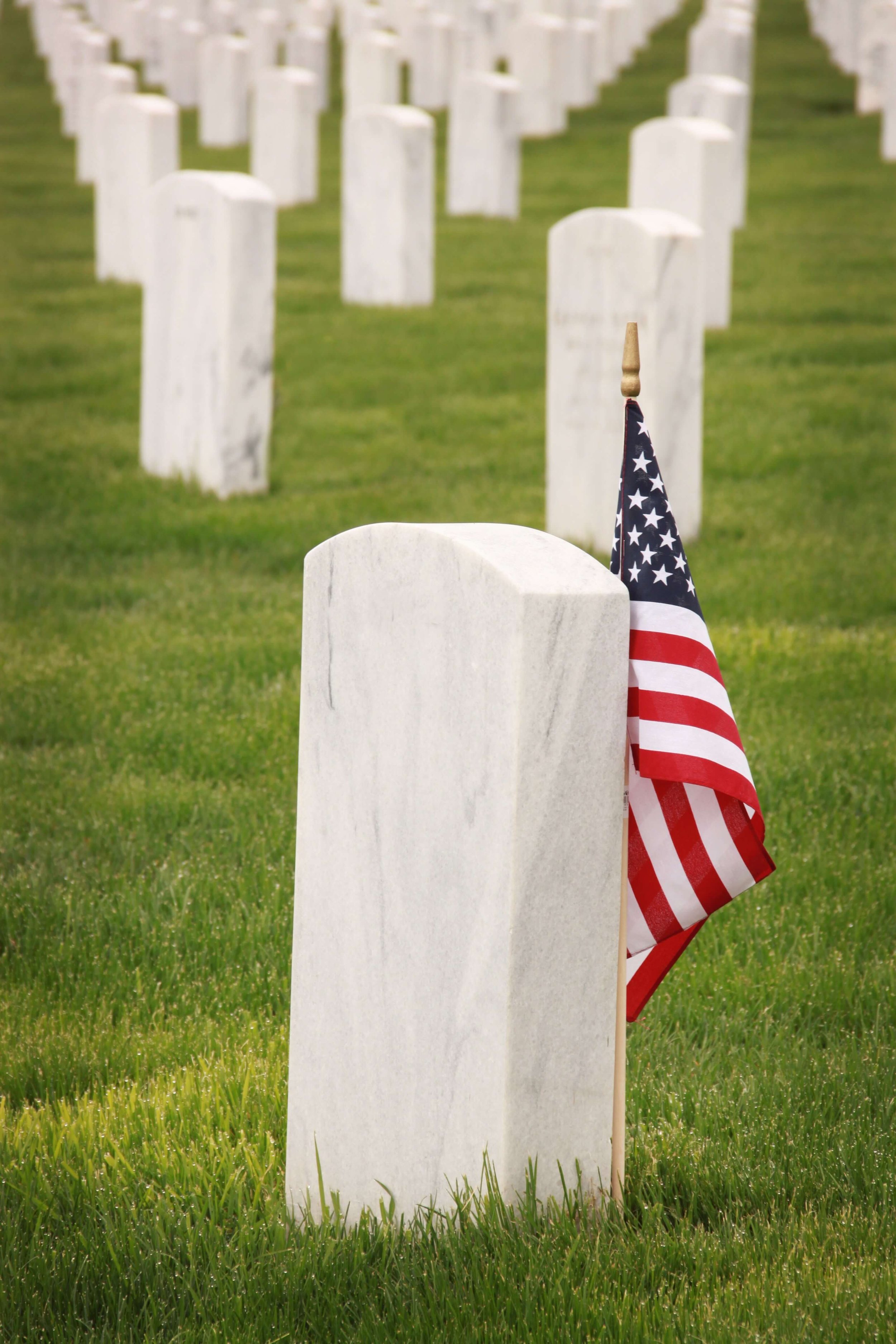Survivor's Guilt and PTSD in Veterans: A Call for Support and Awareness
PTSD: The Invisible Wound
Post-Traumatic Stress Disorder (PTSD) is a common disorder among military personnel and Veterans. According to the U.S. Department of Veteran Affairs, PTSD is slightly more common in Veterans than civilians. Contrary to societal belief, PTSD in Veterans is not exclusive to only those who have deployed. PTSD is not always a condition that can be observed, it is an "invisible wound." Commonly, symptoms of PTSD begin to appear once the soldier returns home when the adrenaline begins to settle. Calmness is seemingly a positive thing, but there are thoughts in the silence, sometimes associated with survivor’s guilt.
What is Survivor’s Guilt?
Survivor's guilt is an existential crisis commonly experienced by soldiers. Some common symptoms of survivor’s guilt include nightmares, insomnia, flashbacks, anger, apathy, depressive moods, anxious moods, violent impulses, difficulty concentrating, and feeling preoccupied with the meaning of life. Those with survivor’s guilt often describe feeling numb or lost. A thought that is often had by those with survivor’s guilt is that they “left someone behind,” or believe “it should have been me.” Suicidal ideation can be a part of this experience as well.
A Veteran’s Perspective on PTSD
The following is a written excerpt from a Veteran, shared anonymously with their consent when asked about their experience with survivors’ guilt…
“I had feelings of profound depression where I didn’t feel worthy of living. Just dead inside. Some days were nearly impossible to function. Sometimes I’d feel like I didn’t deserve anything good to happen to me or that I deserved love because I got to live when I had buddies that didn’t. It would make me angry sometimes and I would re-play everything in my mind thinking I didn’t do my job or not do my job well enough. I’d get angry at people when they’d thank me for my service (still can make me uncomfortable sometimes). I’d get angry at things like people talking, messing around, or not taking off their hats during the national anthem, because when I see the flag, all I see is one draped over my friends.”
This is one person’s experience with PTSD and survivor’s guilt. This is also a tiny glimpse into the full experience. The transition back to civilian life is difficult for the survivors. One may think, “Why do I get to go back home? Why couldn’t they? I am not more deserving, why me? I could have done more.” This can be a difficult thought to process and understand for their loved ones. Loved ones think, “Why not you? You are deserving! You are loved! You are worthy! I need you!” The feelings of our soldiers are never personal testaments to us but to their own grief.
My Personal Experience With Survivor’s Guilt
As the daughter of an Army Ranger, my familiarity with survivors’ guilt began from personal insight. During my childhood, my father struggled immensely with PTSD and survivor’s guilt. The impact on the family in addition to the individual is intense, and often unexpected by the family. The interfamilial dynamics can change, and you might feel helpless when wanting to help a loved one and not knowing how to. If you are feeling stuck, whether you are the one struggling with PTSD or survivors’ guilt, or if you are the loved one, I want you to know that you are never alone. These experiences can feel so isolating, but you no longer have to live in isolation. Below are some tips and thoughts, from the same soldier quoted above; and from me, the daughter of an Army Ranger, Master’s Level Counselor, and mental health advocate for our Veterans and soldiers.
Tips and Thoughts from a Veteran:
Find people to talk to. Maybe not many will understand exactly, but there are plenty of people willing to listen and show you deep empathy.
I had to realize there is nothing I can do about the past and that there’s a reason why a rear-view mirror is smaller than a windshield.
Change your perspective. Don’t end your life or dread living because of grief. Live your life to honor those who cannot. Live a life that would make them proud.
Have faith. Whatever that looks like for you. Find your purpose.
Tips and thoughts from a Veteran’s daughter and counseling professional:
Your loved one is experiencing grief, for the ones they lost and maybe parts of themselves. It is not your fault and it’s not your job to try to fix that problem.
You do not have to understand or know the details of what occurred to help them move forward, or for yourself.
Support and love are the greatest things you can provide them.
Get educated on PTSD and the resources available for your loved one. Being knowledgeable will not make you understand the depths that they feel, but it will help you understand your loved one’s experience from a new perspective so you can show up in a way that is needed by them, no matter how big or small. (Understanding PTSD: A Guide for Family and Friends - https://www.ptsd.va.gov/publications/print/understandingptsd_family_booklet.pdf)
To anyone reading this and resonating with this, I am so glad you are here.
Programs That Support Veterans in Tangible Ways:
If you feel compelled to support Veterans in tangible ways, here are some programs with a mission we feel is worthy of your support:
The Headstrong Project -
https://theheadstrongproject.org/ - The Headstrong Project is a non-profit organization that provides trauma-informed mental health services to veterans, service members, and families focusing on PTSD.
22Kill (One Tribe Foundation) -
https://1tribefoundation.org/ – 22Kill is a mental health organization created to raise awareness and combat suicide by empowering veterans, first responders, medical frontline workers, and their families. Why is it called 22Kill? In 2012, the US Department of Veteran Affairs released a data report that showed there are 22 suicides a day among veterans and active service members.
Carry The Load -
https://www.carrytheload.org/who-we-are/ - Carry The Load is a non-profit organization that provides volunteer and community opportunities to honor the military, veterans, and first responders, and the sacrifices they and their families make.
Wounded Warrior Project -
https://www.woundedwarriorproject.org/mission - in 2023, this organization was created to provide items to wounded soldiers who were coming home from Iraq and Afghanistan. Now, the Wounded Warrior Project provides mental health counseling, career counseling, and long-term rehabilitative care.
Other Resources:
To support local veteran-owned businesses, you can find them here: https://www.veteranownedbusiness.com/tx/tarrant
To reach the Veteran’s Crisis Line, dial 988 and press 1.
If You Are a Veteran Dealing with Survivor’s Guilt, Reach out to a Trauma Therapist in North Richland Hills, TX Today!
Luxx Therapy in North Richland Hills, TX urges you to take action and support our military personnel and Veterans who may be experiencing the invisible wounds of PTSD and survivor's guilt. Together, we can create a supportive and understanding environment for our military personnel and Veterans, ensuring they receive the care and support they deserve. Let's honor their service and help them heal from the invisible wounds they carry.
If you or someone you know is struggling with Survivors Guilt and PTSD reach out to our Trauma Therapists today and begin healing!
Get to know our skilled team of therapists here.
Fill out our convenient online contact form here.
Rediscover purpose and meaning in your life.
OTHER MENTAL HEALTH SERVICES AVAILABLE AT LUXX THERAPY
In addition to Trauma Therapy, we offer a wide range of services at Luxx Therapy geared towards meeting you where you are in your mental health journey. We will walk the path to understanding and healing with you whether you are in need of Individual Counseling, Couples Counseling, or Family Therapy! Reach out to us today.




